No matter where you rent, it’s likely that you must pay a rental security deposit to your future landlord before you get approved to live in the unit. Landlords ask for this deposit to protect themselves from financial loss should a tenant not be able to pay rent and property damage they’d have to fix after the current renter moves out.
The amount of your security deposit can depend on the city you live in, the type of unit you’re renting, and your landlord. However, you may have to pay up to two or three times the monthly rent amount as a deposit. That’s a lot of money, and it could be detrimental to not get that deposit back after your lease is up.
But there are things you can do to ensure you get your full rental deposit back.
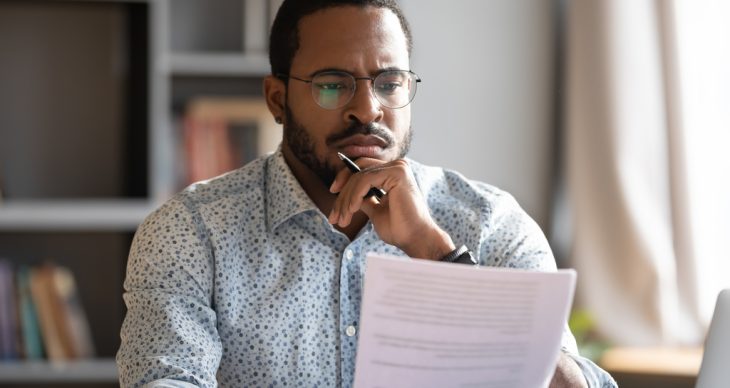
One of the most crucial steps in making sure you get your security deposit back is to review your lease contract. It’s common for a lease agreement to have clauses that outline the conditions under which your landlord or property management company are able to withhold some or all of your security deposit.
In fact, this section of your rental agreement likely lists and describes the situations which could jeopardize your ability to get your full security deposit back. Those situations include:
- Owing the landlord or management company rent.
- Leaving the unit damaged.
- Leaving personal belongings behind in the unit.
- Not cleaning the unit thoroughly.
- Not making repairs or cosmetic fixes as required in your lease.
- Not turning in your keys for the unit, mailbox and/or garage.
An apartment lease agreement may even provide room-by-room expectations so you know exactly what the landlord or property manager will look for. You could use these expectations as a checklist of sorts as you move out and clean the unit before you leave.
It’s important to note that lease agreements can vary, and state regulations can change the expectations for the move-out process and security deposit refund that could be in your lease. Before vacating your apartment or another rental unit, make sure to double-check the move-out clause and security deposit clause to fully understand the vacating circumstances you agreed to.
If you do not have a copy of your signed rental agreement, you can contact your landlord or the apartment’s office to get one.
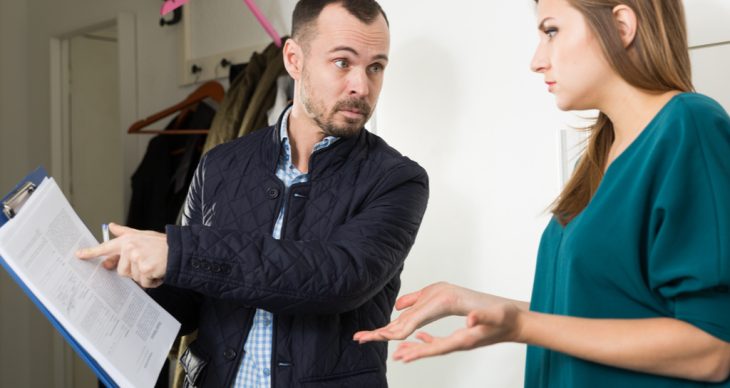
In addition to reviewing your lease, reach out to your landlord or property management company if you have any questions about these expectations. You might have questions like:
- Do I have to fill the nail holes I created the walls?
- Do I need to paint?
- How soon am I able to disconnect utilities?
- Am I required to change the lightbulbs?
- Am I required to clean heating or A/C vents?
- Do I have to deep-clean the appliances, like the oven or refrigerator?

While you live in the unit, make sure that you stay on top of your rent payments and pay any remaining rent before your lease is up and you vacate the unit. That’s because your landlord may use some or all of your security to pay the remaining rent and this rectify financial burden.
However, this process may depend on state laws where you rent. Make sure to read your lease closely to see if your landlord is entitled to some or all of your security deposit if you have outstanding rent payments on the unit.

Another important thing to do while you live in the apartment, house, condo or other rental unit is to do your best to keep the property in tip-top shape. This includes:
- Cleaning regularly to reduce the amount you have to do when you leave and preventing long-term damage, like stains.
- Throwing away trash and cleaning eating and cooking areas to prevent pests.
- Using the fixtures and appliances responsibly.
- Reporting any pest concerns, water damage and maintenance issues with fixtures, appliances, plumbing, electrical items or the property itself ASAP.
- Avoiding hazardous activity that could damage the property.
Stay on top of these caretaking activities to ensure you live as comfortably as possible and help the landlord or property manager keep the property in good condition for the next tenant.
It also improves the chances that you’ll get your full security deposit back because, in many states, landlords can deduct some or all of your security deposit to pay for repairs and maintenance due to damage you caused to the apartment. However, this typically does not include general wear and tear, like carpet fraying over time.
Some damage that you could be charged for include:
- Stain removal.
- Carpet or flooring removal due to severe soil, stains, burns, holes or damage from pets.
- Replacing or fixing visibly damaged appliances and fixtures that have not been previously reported.
- Patching up or replacing drywall that has holes or other significant damage.
- Professionally cleaning a unit that’s been left dirty.
- Replacing doors, door frames, baseboards and other features due to damage or severe staining.
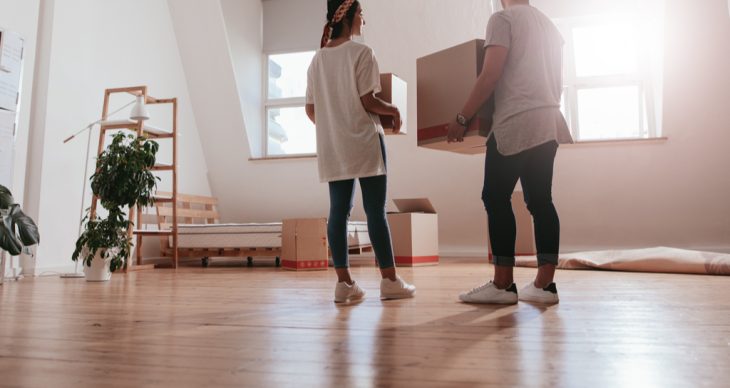
If you find that there’s furniture or other items that you don’t want to take with you, be sure to dispose of them or donate them. Leaving them in the unit for the landlord or property management company to remove and dispose of could cost you your security deposit. In some cases, this may include nails and nail holes in the wall, so make sure to patch these up before you leave, too.
Make sure to dispose of furniture per your landlord’s or management company’s rules; some may not let you leave large items by the dumpster or in it. In addition, make sure to empty the apartment of trash and dispose of it responsibly, too, as this could eat into how much of your security deposit you get back.
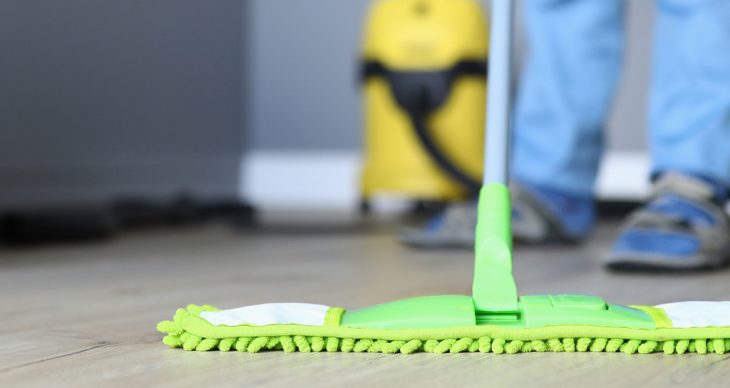
After your stuff is gone, make sure to clean the whole apartment or house thoroughly. Pay close attention to bathrooms and the kitchen where you have appliances and fixtures that might need a deep clean. Vacuum the carpets as well as sweep and mop the floors throughout the whole property. Scrub the walls and wash baseboards that might have dirt, grime or dust.
If you are unable to clean the unit yourself, such as due to a time constraint or physical disability, consider hiring a professional cleaning service to complete a move-out cleaning for you.
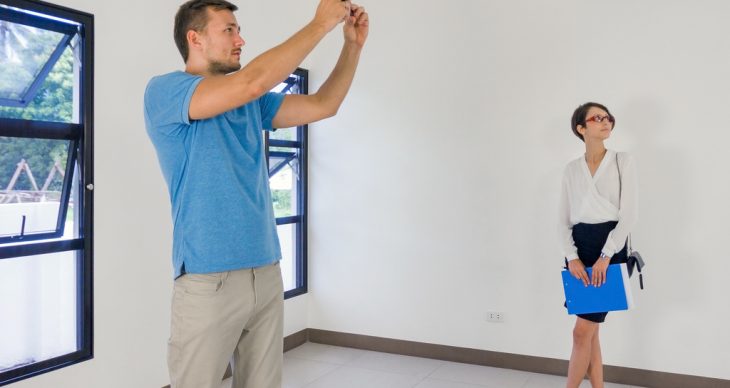
Do a final walkthrough with the checklist of move-out expectations from your landlord. Make sure that the entire unit is clean and well-kept. Pay close attention for damage to outlets, appliances, walls and fixtures. Take photos of every room to get proof of how clean a space or item is or any existing damage that was there when you moved in. That means you should also take photos and report to your landlord any damage or issues that were in the unit before you moved in.
Note down any unresolved maintenance issues and give that to the landlord, too.
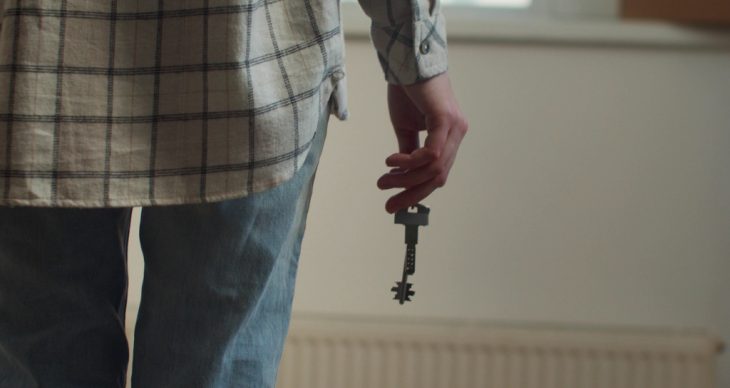
Go on a final walkthrough of the apartment with your landlord or property manager to confirm the condition of the apartment and make sure their final report matches how you actually left the unit. Ask for a copy of their final report, too, to understand what issues they found that you had missed. You should also keep this copy in case you get charged for something that wasn’t in the final walkthrough.